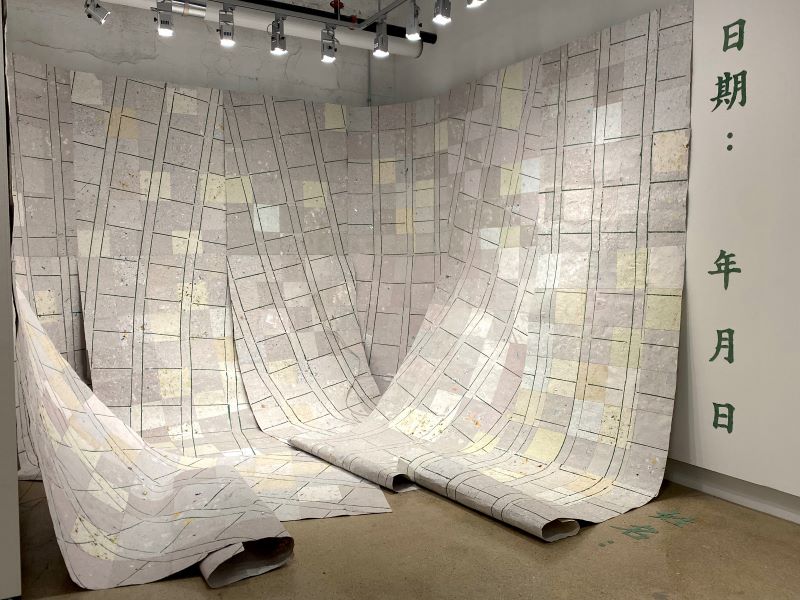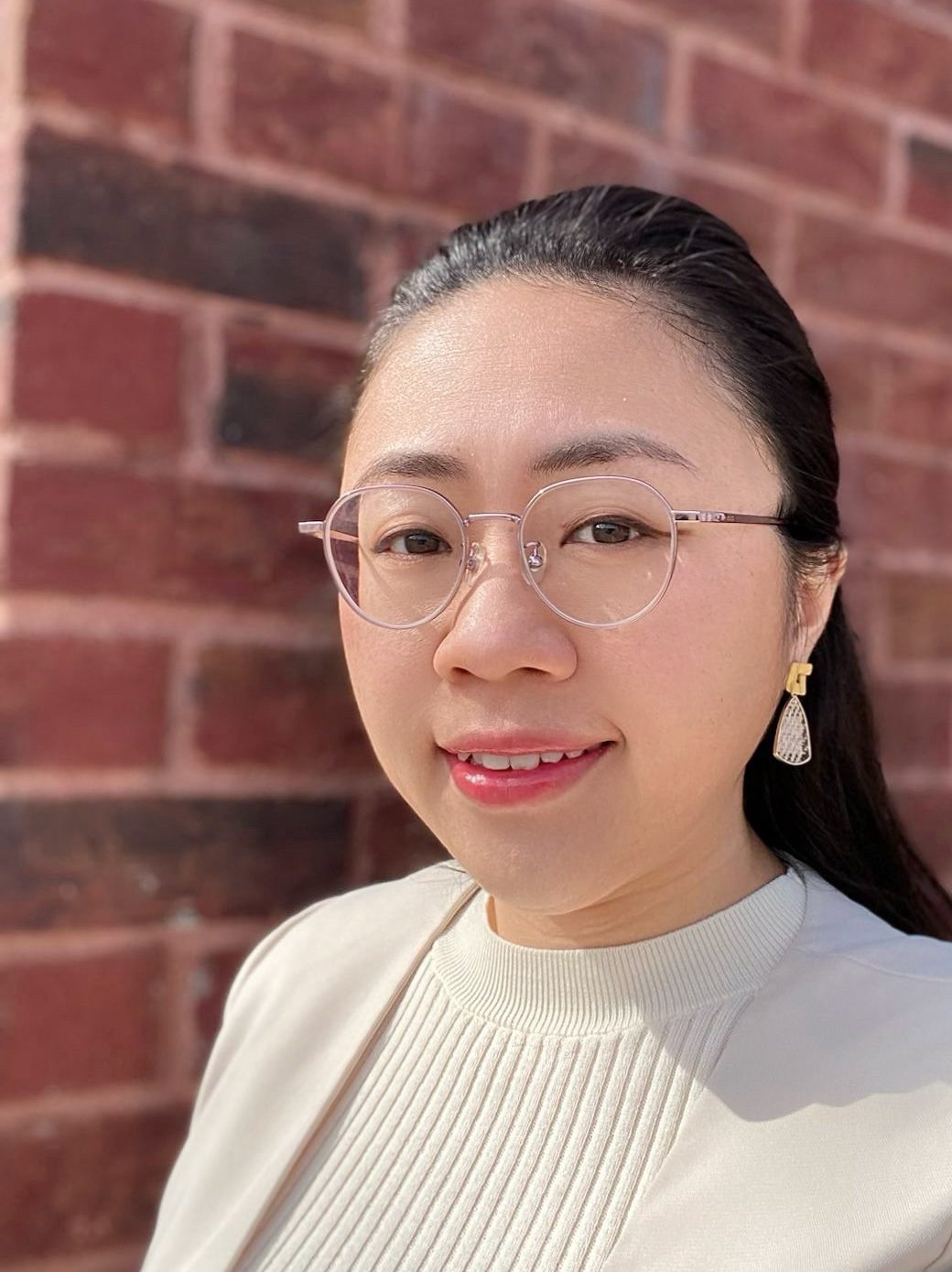March 6, 2024
The American Art Therapy Association represents a diversity of professionals, students, and organizations across the nation. We recognize and celebrate the work of our members at all levels through our Featured Member series.
“By anchoring my clinical practice in the relational-cultural framework, I emphasize the crucial role of connections and relationships within the sociocultural contexts of individual’s lived experiences. My involvement in trauma research and practice, particularly with communities of emigrated Hong Kongers and survivors of sexual violence in Chicago, has enriched my understanding of “healing” as a process of reintegration and reconnection.”
— Tsz Yan Winnie Wong, MAATC, ATR-BC, LPC
Has working with a particular client group shaped your professional focus or specialty? What have you learned from working with these clients?
In my work with individuals at the intersection of relational violence and marginalized identities, a crucial insight has emerged: Violence often occurs within relationships, ranging from personal violations to systemic injustices such as surveillance and censorship. Trauma and rupture can manifest within these relational contexts, but so can repair and recovery. By anchoring my clinical practice in the relational-cultural framework, I emphasize the crucial role of connections and relationships within the sociocultural contexts of individual’s lived experiences.
My involvement in trauma research and practice, particularly with communities of emigrated Hong Kongers and survivors of sexual violence in Chicago, has enriched my understanding of “healing” as a process of reintegration and reconnection. These experiences have reinforced my commitment to a clinically-grounded practice that centers on social justice, moving beyond theoretical buzzwords to actively confront the intricate power dynamics between interpersonal relationships and the broader ethical and sociocultural dimensions of trauma.
What inspires you most about your job right now?
What inspires me most about my job is witnessing the growth and resilience of survivors who experienced gender-based violence. In my current clinical practice at a rape crisis center, I support children, adolescents, and adults from marginalized communities by utilizing creative expressions such as papermaking, pottery, and bookmaking in trauma therapy. For instance, the process of papermaking enables a parallel exploration of trauma recovery in the phase of deconstruction, reconstruction, and reintegration. The therapeutic relationship and art-making process support survivors in exploring the impact of trauma within their contexts, rewriting their own trauma narratives, and reclaiming their sense of agency, control, and power, which is particularly significant during these challenging times in our world.
How have race, diversity, and/or social justice impacted your work as an art therapist?
I’d like to reframe this question. Rather than considering how race, diversity, and social justice impact my art therapy practice as separate factors, I advocate for a critical examination of how art therapy can actively foster equity, justice, and freedom. This necessitates a paradigm shift towards prioritizing differences and elevating marginalized voices within the therapeutic and social contexts in which we operate.
Central to this approach is a commitment to self-reflexivity, which involves a critical examination of our biases, an understanding of our positionality, and a confrontation with the power dynamics at play, especially within the realm of trauma recovery. This shift also affects the dynamics between researchers and participants, as well as between educators and students, leading me to be intentional in the way I develop research methodologies, engage with participants in research, and collaborate with students in the classroom. This process is crucial for challenging and moving beyond the notion of treating or researching “others” and towards a collaborative, empowering practice where art therapy serves as a conduit for social change.
What are your hopes for the future of the art therapy profession?
My hope for the art therapy profession is to deepen the rigor of critical research, particularly in our understanding and engagement with trauma and its historical, social, cultural, political, and ethical dimensions. This effort could begin by cultivating interest and skills in students and providing more support for emerging therapists to undertake research that critically examines the complexities of human experiences. It is also crucial to elevate the voices and experiences of practitioners at the intersections of marginalized identities, including Black, Indigenous, and People of Color communities.
“Repositioning Home”
2022
Handmade paper with mixed media

What’s your engagement with AATA?
I have participated in the AATA community by presenting at both the annual conferences and the continuing education series. Additionally, I have contributed as a member of the proposal review team for the AATA annual conference.
Anything else you’d like to share?
Here is a 2-minute video to the artwork and art-making process of “Repositioning Home”.
About Tsz Yan Winnie Wong, MAATC, ATR-BC, LPC
Tsz Yan Winnie Wong, MAATC, ATR-BC, LPC is a Registered Board-Certified Art Therapist, Licensed Professional Counselor, an EMDR-trained clinician, supervisor, educator, researcher, and artist. Winnie’s research centers on cultural identities and trauma recovery in art therapy practice. Her art practice examines belonging and connection and is presented through participatory art and site-specific installations, with her recent work exploring emigration and home through papermaking.

With over fourteen years of diverse experience spanning institutions and communities in Singapore, India, and Hong Kong, Winnie currently practices at YWCA Metropolitan Chicago. There, she applies anti-oppressive frameworks rooted in critical feminisms and relational-cultural theory, offering trauma-informed art therapy to survivors of sexual violence across all age groups. In addition to providing professional training on crisis intervention, Winnie is an active participant in both national and international art therapy discourses, contributes as a reviewer for the American Art Therapy Association conference proposals, and serves on the Cook County human trafficking task force subcommittee. Winnie is also the founder of Dialogue in Art, an open community studio in Hong Kong dedicated to supporting underserved children and youth through art-making and community building.
